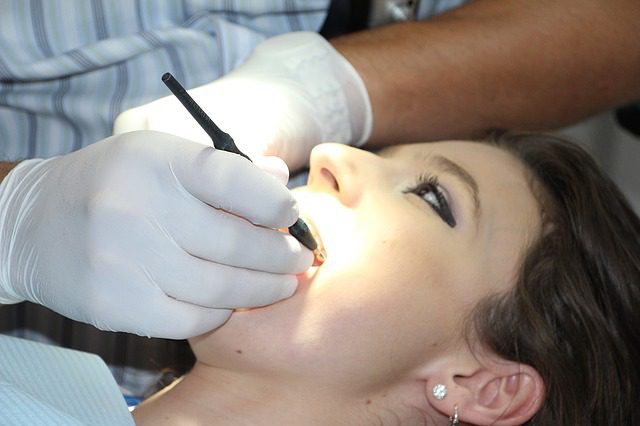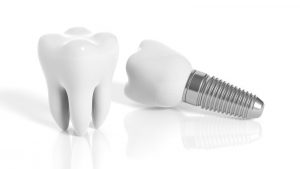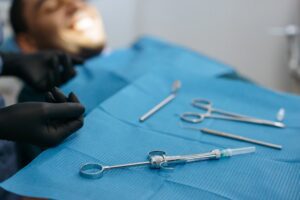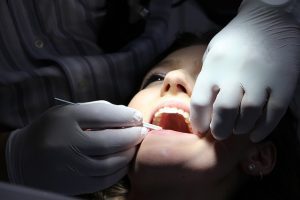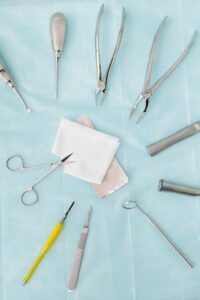In the US, it seems almost a rite of passage to get your wisdom teeth taken out. We refer to them a lot like the appendix – is it for anything? Not really, but it will mess you up if things go bad. Wisdom teeth can cause you serious problems, especially if they are impacted, or if the wisdom tooth’s roots have grown into the jaw incorrectly. If your dentist or oral surgeon recommends you have your wisdom teeth removed, you’d do well to heed their advice.
But why do we have all these extra body parts? What are wisdom teeth even for? And what should you expect when you get your wisdom teeth out? Good question! Read on.
Why Should You Have Your Wisdom Teeth Removed?
Wisdom teeth are your third set of molars, located in the back of your mouth. They emerge for most people between the ages of 17 and 25. Because most of our mouths don’t have enough room for them, wisdom teeth tend to come in wrong. Sometimes they don’t even “come in” at all, because they get stuck below the gums, referred to as impacted wisdom teeth.
Unlike the appendix, we know what wisdom teeth are for: chewing. But they’re for chewing hard, fibrous foods that aren’t eaten in the Western world anymore. Soft, processed foods, over generations, have caused our lower jaws to shrink. They don’t do enough work to become stimulated enough to grow to their originally-intended size. This is why many people have overbites, and why your dentist will never try to completely rid you of an overbite… because they can’t. So – soft foods, smaller jaws, huge teeth we have no room for. Result: the practice of wisdom tooth removal.
Extracting impacted wisdom teeth is a more involved oral surgery than a typical wisdom tooth removal. Most of the time, there’s not enough room for the tooth to erupt, so it gets stuck under the gums and pushes other teeth around instead. And if the roots of your wisdom teeth have grown wrong because they are so far back in your mouth or are too crowded, they can cause serious problems, and a more invasive surgery to fix.
You’ll also have issues if your wisdom teeth are coming in at the wrong angle. Your mouth might not be big enough for your wisdom teeth. They may also develop abscesses or cavities and lead to gum disease. These are the very reasons we often recommend wisdom teeth removal.
Before Your Wisdom Tooth Removal Surgery
Getting your wisdom teeth removed really isn’t that scary, and it’s something an oral surgery practice like ours does nearly every day. We’ve got this down pat; it’s a simple process and an easy recovery, considering it’s a surgical procedure.
First, you’ll meet with your oral surgeon. We’ll go over any health problems you might have as well as any medication you might be taking. Feel free to ask us any questions about the procedure. It may help to read up on wisdom teeth removal so you know what to ask.
We’ll also discuss anesthesia options. Dr. Puckett is an oral surgeon fully certified in all options of sedation dentistry, so it really is up to you. The important thing is we want you to feel comfortable.
However, we need you to be absolutely honest about your health, what medications you take, alcohol, tobacco, drug use, etc. Because we often put people in twilight or fully sedate them during a wisdom tooth extraction, we need to have all your health information so we can ensure your anesthesia course is safe.
Leading up to your extraction, you should do these things:
- Don’t drink anything starting the morning of your procedure.
- Don’t smoke. But if you do smoke, stop for at least 12 hours before your appointment.
- Prep your home for comfy couch time and lots of soft foods like ice cream.
- Stop eating and drinking anything but water after midnight.
Having Your Wisdom Teeth Out — What to Expect
You’ll need to have someone with you at your appointment – there’s no way you’ll be able to drive home. And you likely won’t feel up to it anyway. If you have a fever, nausea, or feel otherwise unwell on the day of your wisdom tooth removal, call us and reschedule. Our biggest priority is patient safety, and doing an oral surgery on someone who is ill increases risks of anesthesia complications, infections and poor healing. Your wisdom teeth can wait a week or two.
Assuming you feel great and are ready to go, you might be surprised to know the actual surgery takes about 45 minutes. It’s not a long procedure; it’s the recovery can take a while.
Depending on what type of sedation dentistry you prefer, you may be completely out for the surgery or just relaxed and numb. Either way, you shouldn’t feel a thing. If you do feel any discomfort, let us know. We can adjust the level of anesthesia so you feel no pain.
Once you are feeling no pain, we’ll use surgical tools to cut your gums and remove your wisdom teeth. We’ll then stitch the wounds back together so you heal quickly. We’ll likely give you gauze to suck on in order to soak up the blood. It’s normal for the extraction sites to slowly bleed for the next day.
Wisdom Teeth Removal Aftercare
The actual surgery for wisdom teeth is no big deal. You might not even remember it. The after care, however, will take some time. Give yourself plenty of rest.
You’ll probably feel groggy after surgery, depending on your level of sedation. Someone will need to drive you home, especially if you are coming from Columbus, Cincinnati, or Dayton.
Yep, you’ll feel some pain. There’s no way around it. The actual amount of pain can vary according to your pain threshold and how much pain medication you take. If your wisdom teeth were impacted or otherwise complicated, or you’re older, the recovery will be a bit slower and more uncomfortable. You’ll want to take some time off school or work to recover. With recovering from a wisdom tooth extraction, self-care is key. Give yourself a couple days of couch time and binge your favorite comfort show on Netflix. You’ll need to rest easy.
Pain during recovery can easily be managed with over-the-counter painkillers, so long as they don’t contain aspirin, which thins blood. We’d recommend taking pain medication before the pain hits you. The pain meds will take some time to take effect, so plan ahead an hour or so down the line.
There will be some bleeding — especially after the first day. You’ll want to avoid spitting as much as possible. You don’t want to dislodge the blood clot from the socket where your tooth used to be. Replace the gauze over the socket often. The goal of every day of healing from your wisdom tooth surgery is: don’t mess up the clot covering the socket.
Other things to remember with your wisdom tooth aftercare include:
- Don’t brush or floss over the site…. Brush the rest of your teeth, though.
- Don’t use straws.
- Follow your oral surgeon’s instructions; they know what they’re talking about.
- If you swish salt water, do it gently.
- No smoking.
- No strenuous activity (work or exercise) for 3 days.
In all, most wisdom teeth come out without a lot of fuss, and recovery might go more quickly than you think, especially if you are young. And, of course, there’s always the hilarious couple of hours after your surgery where you’re not lucid. So, if you’re at all anxious, remind yourself that a wisdom tooth removal can give your parents great memories (and blackmail material) for later. Case in point: Ice Bucket Challenge Wisdom Tooth Girl.
